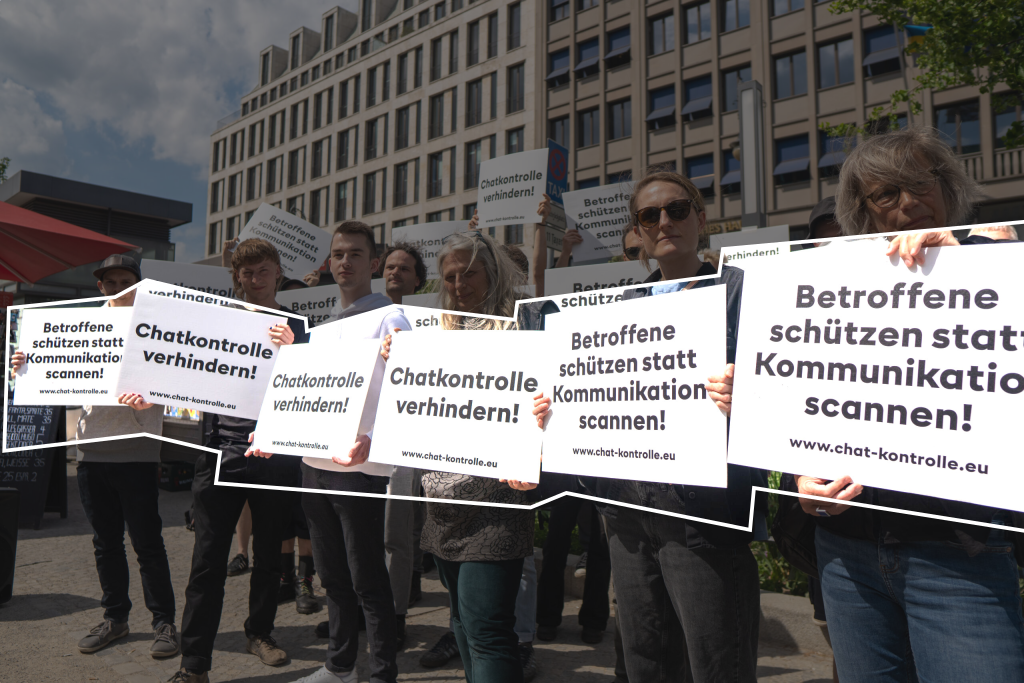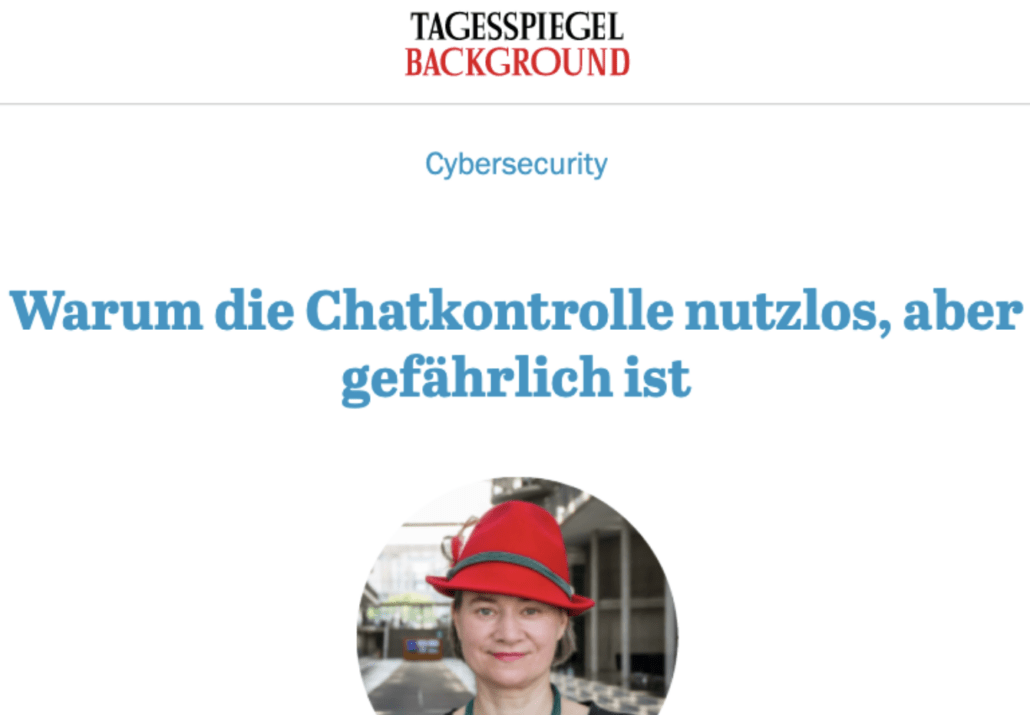Exklusiv: Digital Minister Wildberger Admits Chat Control is More Dangerous Than Initially Thought
The digital landscape is constantly evolving, and with it, the complexities surrounding data privacy and security. Recently, a significant development has emerged in Germany concerning the controversial topic of “Chat Control.” In an exclusive interview, Digital Minister Wildberger has conceded that the proposed Chat Control measures, designed to scan private communications for illegal content, pose a greater threat to fundamental rights than initially acknowledged. This revelation has sent ripples through the digital rights community, raising crucial questions about the balance between security and individual liberties.
This article delves into the key takeaways from the interview, explores the implications of the minister’s admission, and analyzes the potential impact on citizens’ online privacy.
Unpacking the Minister’s Concerns: What Was Said?
The core of Minister Wildberger’s admission revolves around a reassessment of the potential risks associated with Chat Control. While the initial justification centered on combating child sexual abuse material (CSAM), the minister now acknowledges that the proposed mechanisms are significantly more complex and potentially more harmful than initially presented. Key points highlighted in the interview include:
- Scope Creep: The minister expressed concerns about the potential for the scope of Chat Control to expand beyond its initial focus on CSAM. This raises fears that the technology could be used to monitor communications for other types of illegal activity, potentially impacting freedom of expression and political discourse.
- False Positives and Overreach: The interview acknowledged the inherent limitations of artificial intelligence and automated scanning systems. This means a higher risk of false positives, where innocent communications are flagged as suspicious, leading to unwarranted investigations and potential legal consequences.
- Erosion of End-to-End Encryption: Chat Control necessitates breaking or bypassing end-to-end encryption, which is a cornerstone of secure online communication. The minister admitted that weakening encryption could make all digital communication more vulnerable to surveillance and cyberattacks.
- Data Security and Storage: The interview touched upon the complexities of storing and managing the vast amounts of data generated by Chat Control. Concerns were raised about the potential for data breaches, misuse of information, and the creation of a surveillance infrastructure.
The Implications for Digital Rights and Citizen Privacy
Minister Wildberger’s admission has significant implications for the future of digital rights in Germany and beyond. The recognition of the potential dangers associated with Chat Control underscores the importance of a thorough and transparent debate about the technology.
- Increased Scrutiny and Public Pressure: The minister’s statement will likely fuel further public scrutiny and increase pressure on policymakers to reassess the proposed legislation.
- Re-evaluation of the Legal Framework: The admission may lead to a re-evaluation of the legal framework surrounding Chat Control, potentially resulting in stricter safeguards and limitations on the technology.
- Emphasis on Alternative Solutions: The interview may encourage a greater focus on exploring alternative solutions to combat illegal content online, such as proactive content moderation, improved reporting mechanisms, and investment in preventative measures.
- Heightened Awareness and Citizen Empowerment: The discussion around Chat Control is raising awareness among citizens about their digital rights and empowering them to demand greater transparency and accountability from their governments.
Navigating the Future: Balancing Security and Freedom
The debate surrounding Chat Control highlights the ongoing tension between the need to protect citizens from harm and the imperative to safeguard fundamental rights, including privacy and freedom of expression. The minister’s admission serves as a crucial reminder that technological advancements must be approached with caution and a deep understanding of their potential consequences.
The path forward requires:
- Robust Legal Framework: Establishing a clear and comprehensive legal framework that defines the scope of Chat Control, sets strict limitations on data collection and storage, and provides robust safeguards against abuse.
- Transparency and Public Oversight: Ensuring transparency in the development and implementation of Chat Control, including public access to information about the technology and independent oversight of its use.
- Focus on Proportionality: Implementing Chat Control in a way that is proportionate to the threat it is intended to address, avoiding overbroad surveillance and minimizing the impact on innocent citizens.
- Prioritizing End-to-End Encryption: Protecting and strengthening end-to-end encryption, which is essential for secure communication and online privacy.
Conclusion: A Call for Critical Engagement
Digital Minister Wildberger’s admission that Chat Control is more dangerous than initially thought is a pivotal moment in the ongoing discussion about online privacy and security. It underscores the need for a cautious and critical approach to technological advancements, emphasizing the importance of balancing security concerns with the protection of fundamental rights. As the debate evolves, it is crucial for citizens, policymakers, and technology developers to engage in a transparent and informed dialogue to shape a digital future that is both safe and free.
Frequently Asked Questions (FAQs)
1. What is Chat Control?
Chat Control refers to measures that scan private communications (e.g., messages, emails) for illegal content, such as child sexual abuse material (CSAM). This often involves the use of automated scanning technologies and the potential for breaking or bypassing end-to-end encryption.
2. Why is Chat Control controversial?
Chat Control is controversial because it raises concerns about the potential for mass surveillance, the erosion of privacy, the risk of false positives, and the weakening of end-to-end encryption, which is a crucial security feature.
3. What are the main concerns raised by Minister Wildberger?
Minister Wildberger expressed concerns about the potential for scope creep, false positives, the erosion of end-to-end encryption, and the complexities of data security and storage associated with Chat Control.
4. What are the alternatives to Chat Control?
Alternative approaches include proactive content moderation, improved reporting mechanisms, investment in preventative measures, and strengthening existing law enforcement capabilities.
5. How can citizens protect their privacy online?
Citizens can protect their privacy by using end-to-end encrypted messaging apps, using strong passwords, being mindful of the information they share online, and staying informed about digital rights issues.




